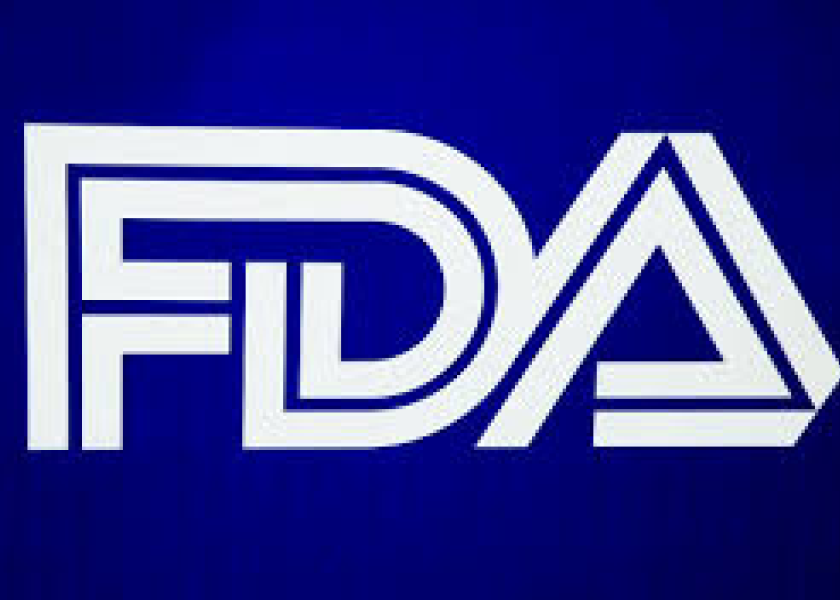FDA Issues Draft GFI on Conditional Drug Approvals

The U.S. Food and Drug Administration today released draft Guidance for Industry, entitled “Eligibility Criteria for Expanded Conditional Approval of New Animal Drugs,” to assist animal drug sponsors and potential sponsors who may be interested in pursuing conditional approval to market animal drugs to address serious or life-threatening diseases or conditions, or an unmet animal or human health need, and for which demonstrating effectiveness would require complex or particularly difficult study or studies.
Until recently, only new animal drugs intended for minor use in major species or for use in a minor species (MUMS) were eligible for conditional approval. In 2018, as part of the reauthorization of FDA’s Animal Drug User Fee Act (ADUFA) program, Congress amended section 571 of the Federal Food, Drug and Cosmetic Act (FD&C Act) to expand FDA’s authority to grant conditional approval to include certain animal drugs for use in major species (horses, dogs, cats, cattle, pigs, turkeys, and chickens) for diseases or conditions that would not be eligible for conditional approval under the MUMS provisions of the FD&C Act.
Expanded conditional approval has the potential to incentivize drug development and provide veterinarians with legally marketed new animal drugs to treat serious or life-threatening diseases or conditions and to fill treatment gaps where currently no therapies are available.
The draft guidance issued today includes proposed definitions for the key terms, “serious or life-threatening disease or condition,” “unmet animal or human health need,” and “complex or particularly difficult study or studies,” that appear in section 571 of the FD&C Act. With the release of the draft guidance, the agency is fulfilling a statutory requirement to provide information to the animal drug industry to further clarify the criteria for determining a drug’s eligibility for the new expanded conditional approval pathway.
The FDA currently reviews applications for conditional approval of MUMS drugs, i.e., new animal drugs intended for minor uses (animal diseases and conditions that occur infrequently or in limited geographic areas and in small numbers of animals) in major species, or for use in minor species (those other than horses, dogs, cats, cattle, pigs, turkeys, and chickens). Expanded conditional approval extends the availability of the conditional approval pathway beyond MUMS drugs to also include new animal drugs not intended for MUMS uses that address a serious or life-threatening disease or condition, or an unmet animal or human health need, and for which demonstrating effectiveness would require a complex or particularly difficult study or studies. FDA intends to use the term “expanded” conditional approval only when referring to applications for conditional approval under the new expanded pathway for non-MUMS drugs. Applications for conditional approval involving MUMS drugs would not be covered by that term.
Conditional approval, including under the new expanded pathway, allows an animal drug sponsor to legally market its product after demonstrating that the drug is safe and manufactured in accordance with full approval standards, and that there is a reasonable expectation of effectiveness for use. The initial conditional approval is valid for one year with the potential for four annual renewals. During this time, the animal drug sponsor must demonstrate that it is actively working toward collecting the remaining effectiveness data needed to achieve full approval. The animal drug sponsor must attain full approval within five years after receiving conditional approval or the conditional approval will be terminated.
The FDA is accepting public comments beginning on September 30, 2019. To electronically submit comments to the docket, visit www.regulations.gov and type FDA-2019-D-3361 in the search box. For assistance in submitting electronic comments, please see regulations.gov help.
To submit comments to the docket by mail, use the following address. Be sure to include docket number FDA-2019-D-3361 on each page of your written comments.
Comments will be accepted at any time but should be submitted no later than January 28, 2020 to ensure that the FDA takes the information into consideration before it begins work to finalize the guidance.
Dockets Management Staff
HFA-305
Food and Drug Administration
5630 Fishers Lane, Room 1061
Rockville, MD 20852
For more information:
Regulations.gov: please note that the public comment period opens on September 30, 2019







